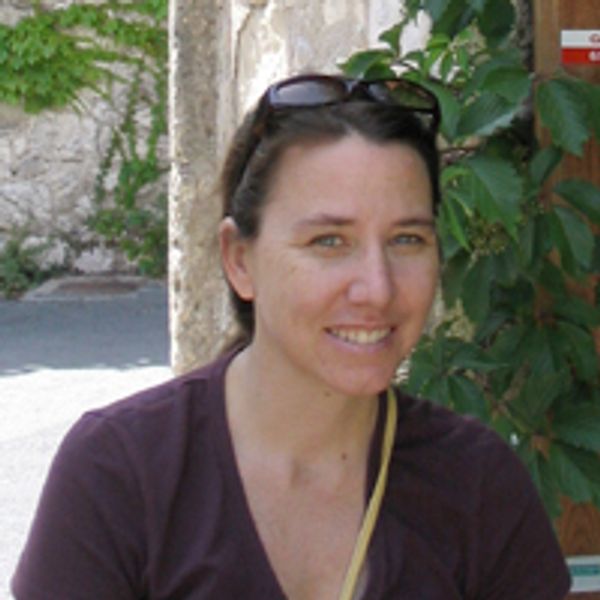Lia Purpura, Parasol Mushroom (detail), featured in AGNI 102
At Cadoin with Willem at Three
Earlier the pizza, the children’s menu and ice cream,
the market square empty today,
its wooden roof condemned. Now the shade
of the church door, large as the head of a beast,
and inside, metal boxes, each slotted with the price
of a candle, the largest a Madonna set to burn here
through frost and the closing of roads. Also the warning
for those who take without paying
we are watching and have penalties. Later the rocks
and the confluence of two rivers,
the meltdown at the carousel, the chef who loses
his wife. Here a sign reading those who believe
will pray; those who don’t will naturally
sit quietly. Here the blessing
of the unborn, St. Theresa as sad
as I’ve ever seen her, and in the corner
the etchings of something older
painted over. With the story of the shroud
I am made into wind: revealed
after eight hundred years as a Kufic imposter,
this piece of cloth is no longer thought
to have wrapped Christ’s head. Now even pilgrims don’t
want to see it. You are outside in your father’s arms,
in the sun. What you say to him becomes prayer
and complaint. To light a candle here is to want
to stave off flood. To travel 1,000 miles
with stones in your mouth.

Carol Ann Davis
Carol Ann Davis is the author of the poetry collections Psalm (Tupelo Press, 2007) and Atlas Hour (Tupelo, 2011) and a forthcoming essay collection, The Nail in the Tree: On Art, Violence, and Parenting (Tupelo, 2019). Her work has been published in The Georgia Review, AGNI, The American Poetry Review, The Gettysburg Review, Beloit Poetry Journal, and elsewhere. An NEA fellow and finalist for a National Magazine Award, she is professor of English at Fairfield University, where she is founding director of Poetry in Communities, an initiative that brings writing workshops to communities hit by sudden or systemic violence. She lives in Newtown, Connecticut. (updated 4/2019)
